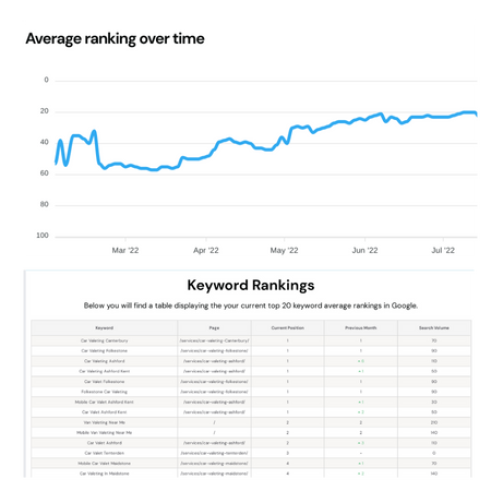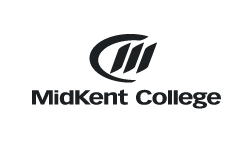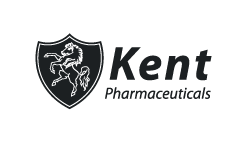Mastering SEO: Effective Strategies for Search Engine Optimisation
5 strategies to attract more organic search traffic to your websites
Mastering search engine optimisation (SEO) is essential for businesses looking to enhance their online presence. This blog post explores powerful strategies that can help you optimise your website and achieve better search engine rankings. By implementing these techniques, you can increase your visibility, attract organic traffic, and boost your website's relevance and authority in the eyes of search engines. From comprehensive keyword research to user experience enhancements, this guide will equip you with the knowledge to optimise your website effectively for SEO.
1. Comprehensive Keyword Research for SEO Success
Keyword research is the foundation of effective SEO. Begin by identifying target keywords like "SEO" and "search engine optimisation" that resonate with your business and target audience. Leverage keyword research tools, such as Google Keyword Planner, SEMrush, or Moz's Keyword Explorer, to uncover high-volume keywords with reasonable competition. Incorporate these keywords strategically throughout your website's content, including page titles, headings, meta tags, URLs, and body text. However, ensure the integration of keywords feels natural and avoids keyword stuffing, preserving the readability and value of your content.
2. On-Page Optimisation: Boosting Relevance and Visibility
On-page optimisation is vital for improving your website's search engine rankings. Start by optimizing your meta tags, including meta titles and meta descriptions, to provide concise and compelling summaries of your page's content. Create unique and keyword-rich meta tags for each page, incorporating target keywords effectively.
Craft descriptive and user-friendly URLs that accurately reflect the content of your page. Optimise your website's headers (H1, H2, etc.) by including relevant keywords within them. Organise your content using subheadings (H2, H3, etc.) to enhance readability and help search engines understand the structure of your content.
Additionally, optimise your images by utilising descriptive file names and alt tags that incorporate target keywords. Compress image files to improve page loading speed, an important ranking factor.
3. Compelling and Relevant Content for Improved Rankings
Content quality and relevance are paramount in SEO. Create high-quality, relevant, and engaging content that satisfies the search intent of your target audience. Incorporate target keywords naturally within your content while ensuring readability. Focus on providing value, answering questions, and addressing your audience's pain points.
Consider developing long-form content, as it tends to rank higher in search engine results. Break up your content into sections with subheadings, bullet points, and images to enhance readability and user experience.
Diversify your content formats by incorporating blog posts, articles, videos, infographics, and podcasts. This approach caters to different audience preferences and encourages social sharing and engagement.
Regularly update and refresh your content to keep it relevant and up-to-date. Add new information, statistics, or case studies to improve the value of your content and demonstrate your expertise and authority in the industry.
4. Building High-Quality Backlinks for SEO Success
Building high-quality backlinks is a vital aspect of SEO. Focus on acquiring backlinks from reputable and relevant websites through strategic link building. Reach out to authoritative websites and industry influencers, offering them valuable content or collaborations. Guest blogging, participating in industry forums, and creating shareable content are effective methods for attracting natural backlinks.
Regularly monitor your backlink profile using tools like Moz, Ahrefs, or SEMrush to identify any low-quality or spammy backlinks. Disavow these toxic links to protect your website's reputation and rankings.
5. User Experience Enhancements for Improved Rankings
User experience is a significant factor in search engine rankings. Ensure your website is mobile-friendly and responsive to accommodate the increasing number of mobile users. Improve website loading speed by optimizing images, enabling browser caching, and utilizing content delivery networks (CDNs).
Make your website navigation intuitive and user-friendly. Use clear and descriptive anchor texts for internal linking, guiding users and search engines to relevant content. Implement breadcrumb navigation to aid users in understanding their current position within your website.
Include a search bar to facilitate easy navigation and enhance user experience. Utilise user-friendly URLs that are easily readable and accurately describe the page's content.
Conclusion: Mastering SEO is crucial for businesses seeking increased online visibility.
By conducting comprehensive keyword research, optimizing on-page elements, creating compelling content, building high-quality backlinks, and enhancing user experience, you can significantly improve your website's search engine rankings. Stay up-to-date with the latest SEO trends, monitor website analytics, and continuously refine your optimisation strategies. With a well-optimised website, you can establish a strong online presence, reach your target audience, and achieve sustainable growth through enhanced search engine visibility.
Here we have shown you how to optimise your website to improve your organic search rankings; but if doing it yourself is not for you, then take a look at our guided and managed seo services.
Thank you for reading our blog - have a free review on us!








.png)

